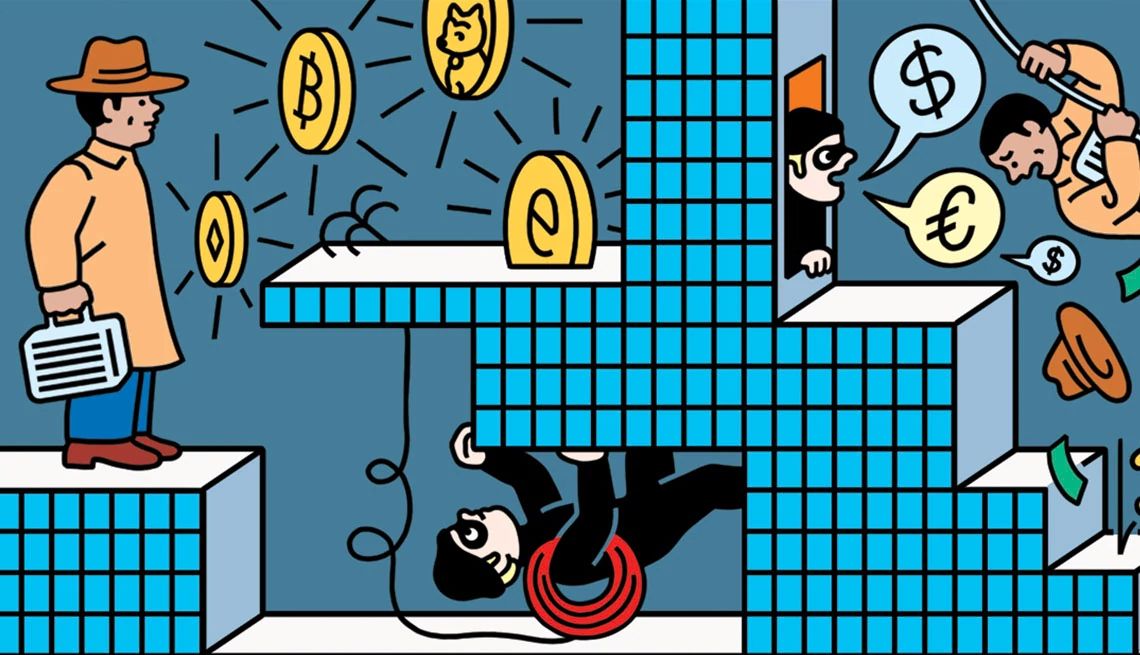Foreign currency
Like the crypto scams noted above, these involve scammers promising easy profits for investing in the currency markets. They often keep the ruse going by delivering Ponzi scheme style payouts.
Recent case: In late 2022, the Securities and Exchange Commission alleged that Houston resident John Fernandez fraudulently collected more than $4.3 million from about 175 investors by promising “guaranteed interest every month” from trading the foreign exchange markets. Instead of investing in the foreign exchange markets, he sent investors computer screenshots of fabricated trade profits, the SEC said. He paid out some money, but it was mostly a Ponzi scheme — a scam in which the illusion of a successful operation is created by paying out fake “profits” to investors that are simply money paid by other scammed investors. When that venture failed, Fernandez blamed a “tax hit” and asked investors to move their money into a new investment described as a “legitimate financial company.” This second venture, which promised annual returns of 5 to 100 percent, also failed.
Guaranteed buyback
These scams promise the benefits of entrepreneurship without any of the risks. All you have to do is buy something from the scammer, who promises to buy it back from you once it’s ready for the market. Variations on this idea include “you buy our seedlings and we’ll buy your plants” and “buy our earthworm farm equipment and we’ll buy your worms.”
Recent case: Since 2021, a company called Agridime has raised $191 million from more than 2,100 investors in what the SEC says is a Ponzi scheme. The company allegedly agreed to sell beef calves to investors for $2,000 apiece, then buy back the same animals at a higher price after a year, guaranteeing a return of at least 15 percent and allowing participants “to become part of providing fellow Americans with the highest-quality farm-fresh beef available.” Instead, the SEC says the company acquired far fewer cattle than it sold to investors, had fewer than 1, $5 million in cash as of last September and has made at least $58 million in Ponzi payments to investors. In its ad, the company admits, “We know it sounds too good to be true.”
Precious metals
In these illegal operations, traders convince victims that they should move their savings from safe, traditional investments into gold and silver coins. These coins, the scammers say, will preserve your hard-earned cash when the economy (or the environment, or the healthcare system) inevitably collapses.
Recent case: In a settlement announced last October, the CFTC and regulators from 30 states alleged that precious metals dealer Safeguard Metals defrauded more than 450 investors by selling them $66 million in silver coins at fraudulent prices. According to the settlement, the company coerced older Americans, most of whom were inexperienced investors, into emptying their retirement accounts for silver purchases by preying on their fears and misrepresenting the safety of traditional retirement accounts. Sales representatives told one investor that the stock market was going to crash and the government was going to confiscate people’s IRAs, and repeatedly called another to say “hurry up” and “make a decision.” Although it tells clients it typically sells silver to them at 4 to 23 percent above its own costs, Safeguard’s markups actually averaged 71 percent through 2021, according to the CFTC.

